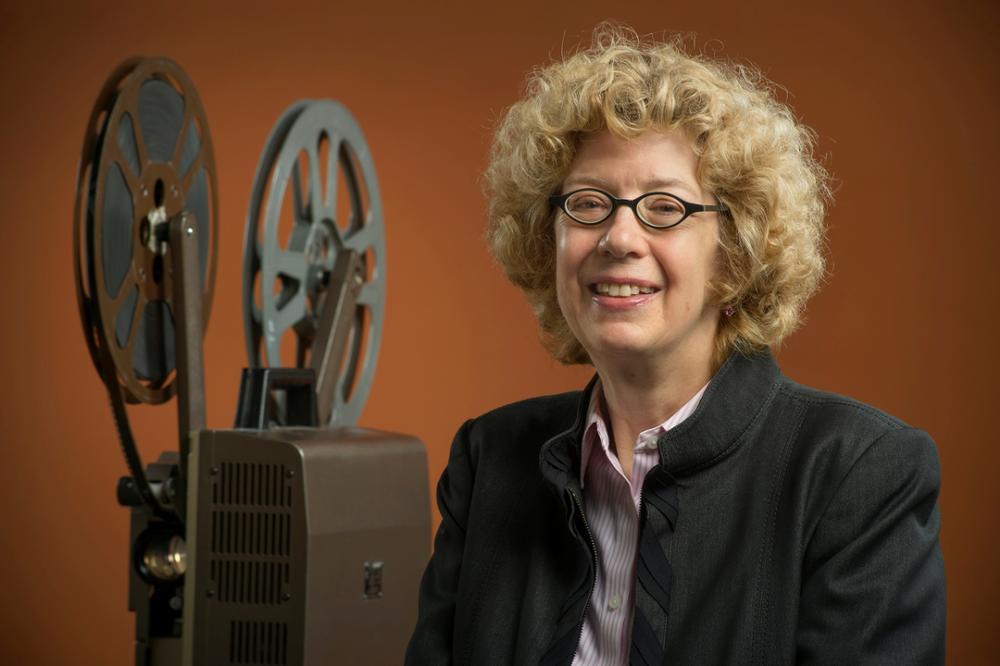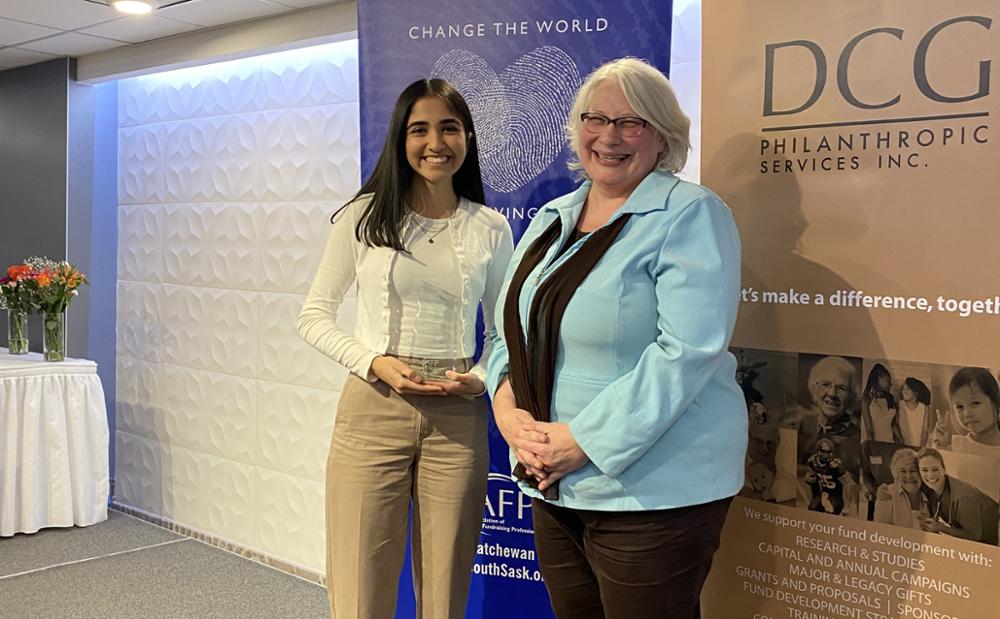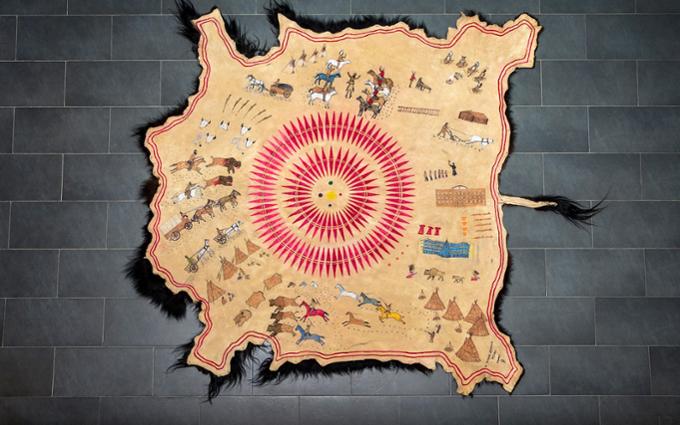Last September, the Office of Indigenous Engagement launched the U of R’s Indigenous Engagement Strategic Plan Tapwewin kwayaskwastâsowin, Truth and Putting Things Right. One of the themes in the plan is Learning and Teaching, with an objective to incorporate Indigenous ways of knowing into teaching and research. By integrating Indigenous values, such as respect, reciprocity, and relationship building into the classroom, students, and the larger community will have more respect and better understanding of Indigenous worldviews and ways of knowing.
The Learning and Teaching theme dovetails well with a number of the U of R 2020-2025 Strategic Plan’s areas of focus and commitment to be an active partner in reconciliation.
Thinking globally, acting locally
Dr. Sheila Petty is a Professor in the Department of Film. Throughout her 35-year career at the U of R, Petty says that she has always looked to theoretical texts and ways of knowing from the cultures she has been working in. In the past this has been African, and more recently North African. She has also incorporated Indigenous cultural thinking — which allows control over the production and depiction of one’s own image, from North American Indigenous scholars and artists such as Chadwick Allen, Bill Reid, David Garneau, and Michelle Raheja — into her teaching and research.
In my film classes, it is a major goal of mine to expose students to as many Indigenous examples as possible. If it’s appropriate, I show work from Indigenous artists and Indigenous perspectives, so that we can have a discussion around it. — Dr. Sheila Petty, Professor in the Department of Film
Petty often refers to a quote attributed to Édouard Glissant, the late poet, philosopher, and literary critic, “You must think globally, but act locally.” She links it to David Garneau’s (Professor, Faculty of Media, Art, and Performance) suggestion that, rather than assume their audiences are Euro-American, that Indigenous artists and authors make exhibitions and books that assume their reader is Indigenous.
At the beginning of each semester, Dr. Petty shares her statement of reflexivity, or the ways in which she is sensitive to the process that may shape, with her students:
As a descendent of Canadian settlers and scholar of Sub-Saharan African, North African, Indigenous Amazigh cinemas, I strongly believe that working in cultural contexts different from one’s own necessitates the development of respectful listening skills and openness to new experiences that are critical if one is to listen to and understand the goals of such artworks and artists.

When Petty hires student researchers, she requires them to take the Four Seasons of Reconciliation course. This course provides the foundational knowledge on the relationship between Canada, Indigenous Peoples, and the Truth and Reconciliation Commission of Canada.
“In my film classes, it is a major goal of mine to expose students to as many Indigenous examples as possible,” say Petty. “Whatever class I teach, if it’s appropriate, I show work from Indigenous artists and Indigenous perspectives, so that we can have a discussion around it. One of the liveliest discussions happens when we deal with the idea of ‘giving back’. Former film graduate students and knowledge keepers, Janine Windolph and the late Trudy Stewart, once stated in class, 'If you take a story and film it, you must give it back.'"
Honouring and empowering Indigenous women’s voices
Raiha Shareef graduated from Luther College at the University of Regina in the spring of 2023 with a Bachelor of Arts degree in Psychology. Now, she is pursuing a legal education at McGill University Faculty of Law and interns at the Canadian Human Rights Commission. While she was at the U of R, she took a class with Dr. Brenda Anderson, Associate Professor (Luther College) in the Department of Gender, Religion and Critical Studies, that focused on Missing and Murdered Indigenous Women.

“While it is such a heavy topic on a very pressing current issue, Dr. Anderson taught the class with a trauma-informed and comparative lens,” says Shareef. “We examined femicide trends on Indigenous women globally, all while keeping space to acknowledge our emotions and think critically about how we feel. Studying such injustices in a way that did not essentialize Indigenous women into a victim trope allowed us to fully explore, honour, and empower Indigenous women’s voices.”
As she pursues her studies in Law, Shareef continues to incorporate the important lessons and tools that she took from the class into her legal research and her writing.
Check out the U of R’s Indigenous Engagement Strategic Plan, Tapwewin kwayaskwastâsowin – Truth and Putting Things Right.
Banner photo: Knowledge keeper Wayne Goodwill painted this traditional Buffalo Winter Count Robe and presented it to the University of Regina in 2022. The robe tells the story of the Indigenous experience from precolonial days to the present. Now, it is used as a teaching tool to support the U of R and surrounding community on the path of truth and reconciliation. Credit: University Communications and Marketing
About the University of Regina
2024 marks our 50th anniversary as an independent University (although our roots as Regina College date back more than a century!). As we celebrate our past, we work towards a future that is as limitless as the prairie horizon. We support the health and well-being of our 16,700 students and provide them with hands-on learning opportunities to develop career-ready graduates. Our research enterprise has grown to include 21 research centres and 12 Canada Research Chairs and brings in more than $51.2 million in funding annually. Our campuses are on Treaties 4 and 6 - the territories of the nêhiyawak, Anihšināpēk, Dakota, Lakota, and Nakoda peoples, and the homeland of the Michif/Métis nation. We seek to grow our relationships with Indigenous communities to build a more inclusive future.
Let’s go far, together.
